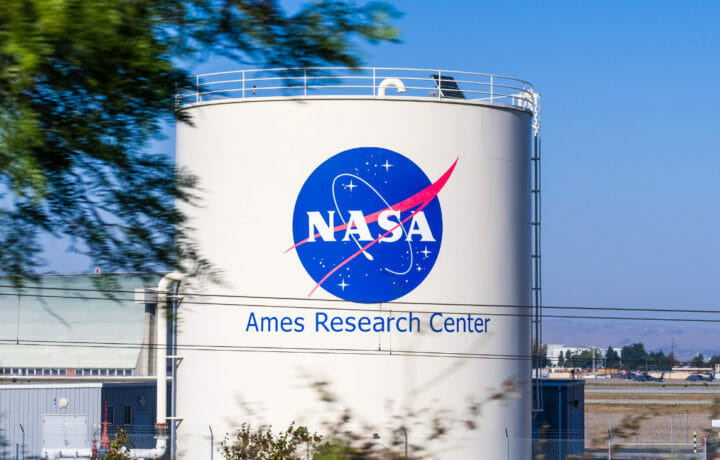National security investments are a key indicator of future opportunities. They also advance innovation and grow the workforce. Recently, Accenture, through Accenture Ventures, invested in Titan Space Technologies, an orbital compute platform that offers real-time monitoring and neural engine capabilities to accelerate the next generation of scientific technology innovations for enterprises, such as adaptive immune response, carbon capture and biomedical applications.
“The burgeoning private and commercial space sector has created a once-in-a-generation opportunity for companies to leverage the unique R&D environment of space along with ever-increasingly sophisticated AI and other technologies to potentially solve our most pressing issues here on earth such as climate change, disease interventions, and materials shortages,” said Tom Lounibos, managing director, Accenture Ventures. “The launch of Titan’s first AI models to the ISS marks an amazing new milestone in AI-driven research and experimentation.”
As the ISS U.S. National Laboratory points out in its website, “R&D onboard the ISS National Lab may provide insight into research questions that have eluded traditional laboratory experimentation in the fields of human health, biosciences and biotechnology, energy and biofuels, physical and materials science, engineering research and technology, and Earth and space imaging and observations.”
Titan is the latest company to join Accenture Ventures’ Project Spotlight, an engagement and investment program focused on investing in companies that create or apply disruptive enterprise technologies. In addition to funding, Project Spotlight connects emerging technology software startups with the Global 2000 to fill strategic innovation gaps, and offers extensive access to Accenture’s domain expertise and enterprise clients, helping startups harness human creativity and deliver on the promise of their technology.
Contract Opportunities to Watch
| Jacobs |
NASA has awarded a contract to Jacobs Technology Inc. of Tullahoma, TN to provide the agency’s Ames Research Center in Silicon Valley, CA with support services for ground-based aerospace test facilities at the center. The contract will also ensure that testing objectives are met, and related services are acquired for Ames’ aerospace facilities to satisfy research, development, testing and commercial needs for programs utilizing the center’s testing facilities. The contract, Aerospace Testing and Facilities Operations and Maintenance (ATOM-5), supports a vast number of experiments in the ground-based aerospace facilities at Ames, including wind tunnels, high-enthalpy arc jet facilities, and the Sensor and Thermal Protection System Advanced Research (STAR) Lab. The period of performance will include a 24-month base period, with three separate 12-month option periods. This is a hybrid contract for center wide use, with firm fixed-price (FFP) core management, cost-plus-fixed-fee (CPFF) core technical, and an indefinite-delivery/indefinite-quantity (IDIQ) component under which CPFF and FFP task orders can be issued. These contracts have a maximum aggregate value of $209 million. |
|---|
Key Employer in the Cleared Industry
| CISA |
Women have a small representation in cybersecurity, and yet they remain critical to the mission – CISA knows this and is looking to bring in people with the unique backgrounds and perspectives that represent our Nation. CISA has career pathways for people of all backgrounds, with the goal of creating a more balanced and inclusive workplace culture. Join the CISA workforce! |
|---|
Cleared Opportunities
After the successful completion of Phase 1 of the next-generation electronics program, the Defense Advanced Research Projects Agency (DARPA) has provided BAE Systems’ FAST Labs research and development organization a $5 million contract for Phase 2 of the Technologies for Mixed-mode Ultra Scaled Integrated Circuits (T-MUSIC) program.
T-MUSIC is designed to enable disruptive radio frequency (RF) mixed-mode technologies by developing high performance RF analog electronics integrated with advanced digital electronics on the same wafer. This technology supports critical communications, radar, and electronic warfare (EW) capabilities, and is widely used to support commercial telecommunications.
“Building on the success of Phase 1, in Phase 2 we’ll continue to develop the advanced electronics capabilities that could serve as the foundation for greatly enhanced Department of Defense capabilities in advanced RF sensors and high capacity communications,” said Chris Rappa, product line director for Radio Frequency, Electronic Warfare, and Advanced Electronics at BAE Systems’ FAST Labs. “Phase 2 of the program will move the industry closer to the eventual fielding of this disruptive technology to protect our warfighters.”
The next-generation capabilities that could be made possible with this program include a combination of wide spectral coverage, high resolution, large dynamic range, and high information processing bandwidth. As services rely on electronic sensors in highly congested environments, these capabilities can cut through electronic signal clutter to provide mission critical leap-forward performance.




